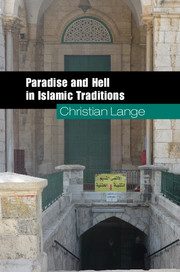Book contents
- Frontmatter
- Contents
- ACKNOWLEDGMENTS
- Introduction: The Pursuit of Literacy
- 1 Literacy, Opportunity, and Economic Change
- 2 Literacy and Illiteracy in Documentary America
- 3 Accumulating Literacy
- 4 “The Power of It”
- 5 The Sacred and the Profane
- 6 The Means of Production
- Conclusion: Literacy in American Lives
- APPENDIX: INTERVIEW SCRIPT
- NOTES
- BIBLIOGRAPHY
- INDEX
5 - The Sacred and the Profane
Reading versus Writing in Popular Memory
Published online by Cambridge University Press: 05 June 2012
- Frontmatter
- Contents
- ACKNOWLEDGMENTS
- Introduction: The Pursuit of Literacy
- 1 Literacy, Opportunity, and Economic Change
- 2 Literacy and Illiteracy in Documentary America
- 3 Accumulating Literacy
- 4 “The Power of It”
- 5 The Sacred and the Profane
- 6 The Means of Production
- Conclusion: Literacy in American Lives
- APPENDIX: INTERVIEW SCRIPT
- NOTES
- BIBLIOGRAPHY
- INDEX
Summary
In a study of popular literacy in nineteenth-century England, Thomas Laqueur (1976) recounted how on July 6, 1834, in the industrial town of Bolton, England, nearly 1,000 Sunday school students and their teachers took to the streets against efforts to eliminate writing instruction from their Sabbath schools. Although public education was beginning to be well established, working-class children who labored through the week depended on the lay-administered Sunday school for instruction in reading and, increasingly, in writing and arithmetic. Writing was an especially desired skill, according to Laqueur, and admission to Sunday school writing classes was often a reward for good behavior.
By the 1830s, however, an antiwriting movement was afoot, led, Laqueur reported, by the Wesleyan Methodist Conference. Unlike reading, with its direct and traditional connection to piety and Bible study, writing was considered too secular, worldly, and vocational and too strongly associated with upward mobility (a process that conservative church leaders wanted no part in encouraging). Although the antiwriting effort appeared on the surface to be an attempt to purify the Sabbath for prayer and worship, Laqueur argued that the real motive was to suppress the growing power of the lay Sunday school and restore control to the ministry. “Writing instruction on the Sabbath,” he wrote, “came to be considered the identifying mark of the independent, lay-dominated, and locally controlled Sunday school.”
- Type
- Chapter
- Information
- Literacy in American Lives , pp. 146 - 168Publisher: Cambridge University PressPrint publication year: 2001



